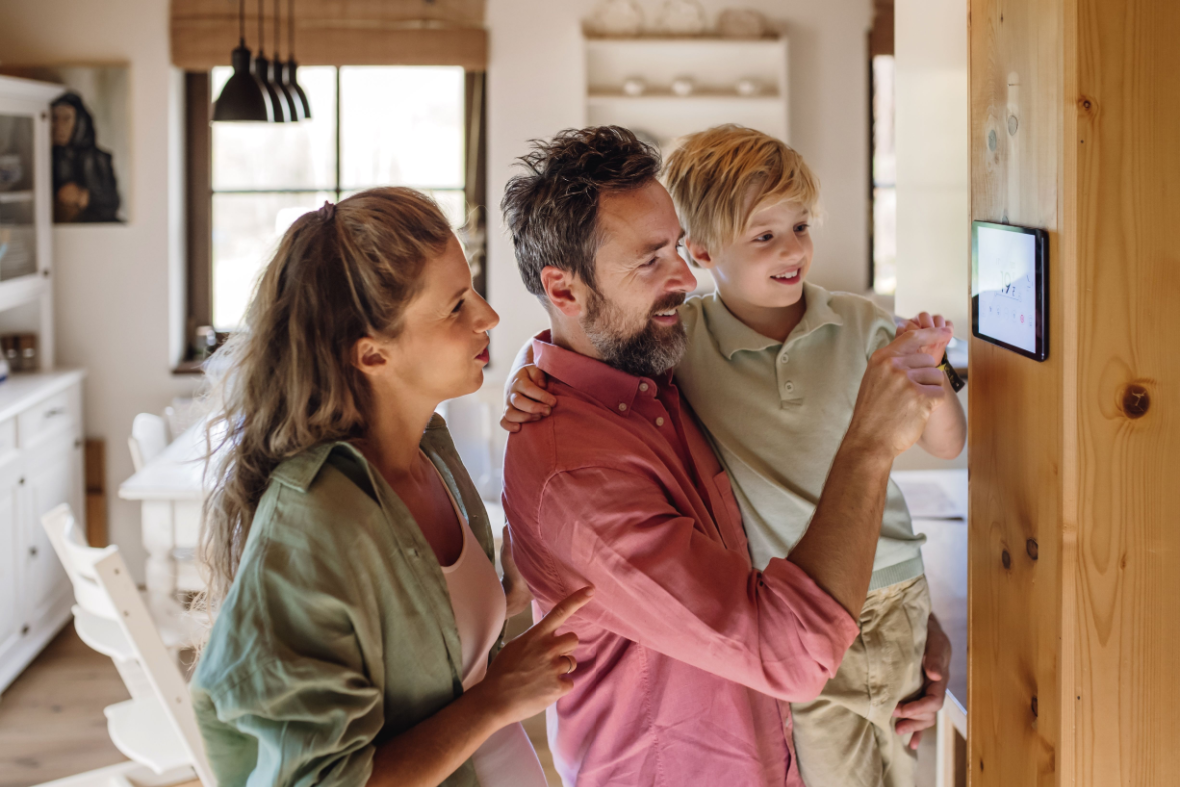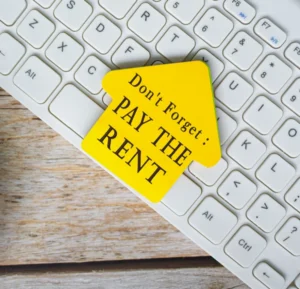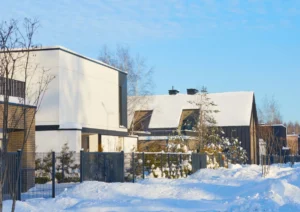
Smart Apartments Are Finally Profitable
Technology has seeped into every part of our daily lives, including our homes. Over the last decade, the number of homes with at least one smart device has steadily increased. Current estimates show that around half of the homes in the United States now feature at least one smart device.
While the majority of these devices are deployed by homeowners, renters also have a strong desire for smart home technology. Surveys indicate that approximately 82 percent of renters want smart home devices.
Until recently, rental owners and property managers have lagged behind homeowners in adopting these technologies. Many did not consider smart technology worth the expense, especially because many renters will often install certain consumer goods like smart speakers, locks, and thermostats themself.
However, things are changing as rental managers begin to recognize the profitability and benefits that smart devices offer.
Enhancing the Resident Experience
One significant benefit occurs even before the renter moves in. Smart locks and access control features enable self-guided tours, reducing the workload for leasing teams and allowing potential renters to tour apartments during off-hours when leasing staff might not be available. This technology also creates a positive first impression for renters who expect a smooth, hassle-free experience.
The same smart devices that facilitate self-guided tours can be used for keyless and mobile entry, an increasingly popular feature among renters. These enhancements not only improve operational efficiency but also allow property owners to justify premium rental prices, thereby increasing revenue.
By offering cutting-edge technology, apartment communities can attract higher-paying tenants willing to pay more for the convenience and security that smart devices provide.
Another highly desired smart home feature being deployed in apartments is smart thermostats. These devices help renters save on their energy bills without sacrificing comfort. Landlords have hesitated to install these often costly devices in properties where renters are responsible for their utility bills.
But the demand from renters for both the sustainable and cost-saving benefits that smart thermostats provide now outweighs the initial installation costs. More cities are starting to enact laws regulating and even fine buildings that use excessive power. Smart thermostats are one of the easiest ways to streamline reporting and decrease energy consumption, leading to lower utility expenses for property owners and improved profit margins.
By promoting energy efficiency, property managers can market their buildings as environmentally friendly, attracting eco-conscious renters and potentially qualifying for green building incentives or rebates.
Connectivity and Added Value
One of the less talked-about smart apartment technologies is community Wi-Fi. By bundling Wi-Fi services, buildings can help reduce renters’ expenses and make their units more valuable. Community Wi-Fi also allows renters to easily connect to reliable internet throughout the entire property, an increasingly important feature in the work-from-home era.
For property owners, offering bundled Wi-Fi can be a competitive advantage that attracts higher-quality tenants and reduces vacancy rates, directly impacting profitability. Providing community Wi-Fi can also open up additional revenue streams through partnerships with internet service providers or by offering tiered internet packages, allowing property managers to generate extra income while enhancing the living experience for tenants.
Pleasing renters is not the only reason for a rental property to deploy smart building features. Maintenance becomes much more efficient with smart apartments and smart building technologies. Residents can easily submit and track work orders through online portals and mobile apps. Since poor maintenance experiences are one of the most common renter complaints, improving this process can significantly increase tenant retention and limit negative reviews.
Quick and effective maintenance responses lead to happier tenants who are more likely to renew their leases and recommend the property to others. Workers and contractors can automatically access necessary areas and easily find important information like service records and owner manuals.
Efficient maintenance operations reduce costs and downtime, enhancing the overall profitability of the property by minimizing vacancy periods and avoiding costly emergency repairs.
Management also benefits from smart devices. Data about every facet of a building can be centralized, making it easy to track performance and compare multiple properties within large portfolios. Increased tenant satisfaction, reduced vacancy rates, and decreased operational costs all contribute to a more profitable building, far outweighing the expenses of installing and maintaining smart apartment features.
The ability to analyze data effectively allows property managers to make informed decisions that optimize revenue streams and minimize expenses. For example, energy usage data can highlight areas where costs can be cut, while occupancy data can help in adjusting rental prices dynamically based on demand. Predictive maintenance powered by smart devices can prevent major issues before they arise, saving significant amounts of money in the long run.
Smart apartments also offer enhanced security features, which are highly valued by tenants. Integrated security systems with cameras, motion detectors, and real-time alerts provide peace of mind to residents.
For property owners, enhanced security can reduce the risk of theft and vandalism, lowering insurance premiums and minimizing liability. Secure buildings are more attractive to prospective renters, allowing property managers to maintain higher occupancy rates and command higher rents.
Advanced security systems can also deter crime, creating a safer community environment that fosters long-term tenant loyalty and stability.
Streamlined Maintenance and Data-Driven Management
Another area where smart technology boosts profitability is in marketing and leasing. Smart apartments can showcase their technological advancements as unique selling points, differentiating them from competitors in a crowded rental market.
High-quality photos and virtual tours featuring smart devices can attract more interest online, leading to faster leasing times and reduced marketing costs. The ability to offer virtual tours and online leasing processes appeals to tech-savvy renters who prefer to handle transactions digitally, streamlining the leasing process and reducing the need for in-person interactions.
Smart lighting systems are another valuable addition to smart apartments. These systems can be controlled remotely or set to adjust automatically based on occupancy and time of day, enhancing both convenience and energy efficiency.
For renters, smart lighting provides a customizable living environment that can be tailored to their preferences. For property owners, smart lighting reduces electricity costs and extends the lifespan of bulbs, leading to lower maintenance expenses.
The modern, high-tech appeal of smart lighting also makes the apartments more attractive to potential tenants, supporting higher rental rates and occupancy levels.
As more properties adopt smart technology, it becomes increasingly challenging for competitors to stay relevant without similar investments. Early adopters of smart apartment technologies can position themselves as leaders in the market, attracting tenants who prioritize modern amenities and technological convenience.
This competitive edge not only drives higher occupancy rates but also allows property managers to implement premium pricing strategies that enhance overall profitability. In the long run, the integration of smart technologies is not just a trend but a standard that defines the future of profitable apartment communities.
Smart apartments are finally proving to be profitable for community owners and managers. From enhancing the tenant experience with convenient features like smart locks, thermostats, and community Wi-Fi to streamlining maintenance and operational efficiencies, the benefits are clear.
Smart technologies not only attract and retain high-quality tenants but also reduce costs and open up new revenue streams. As the demand for smart home devices continues to grow among renters, property owners and managers who invest in these technologies will see significant returns on their investments.
The shift towards smart apartments represents a smart business move, ensuring long-term profitability and sustainability in the competitive rental market.
Source: Propmodo













 Accessibility
Accessibility